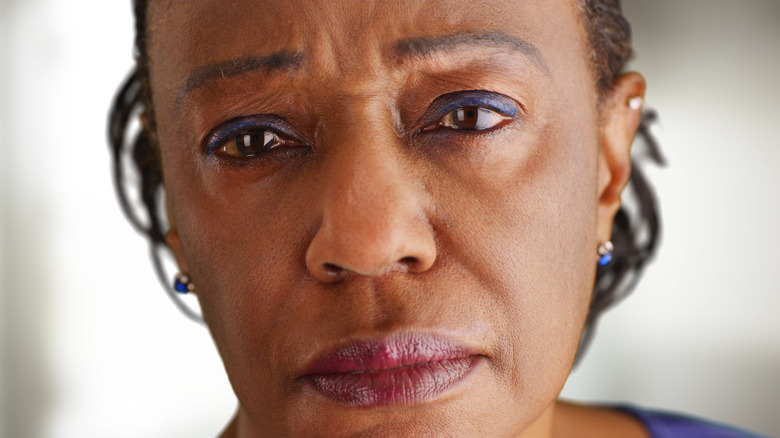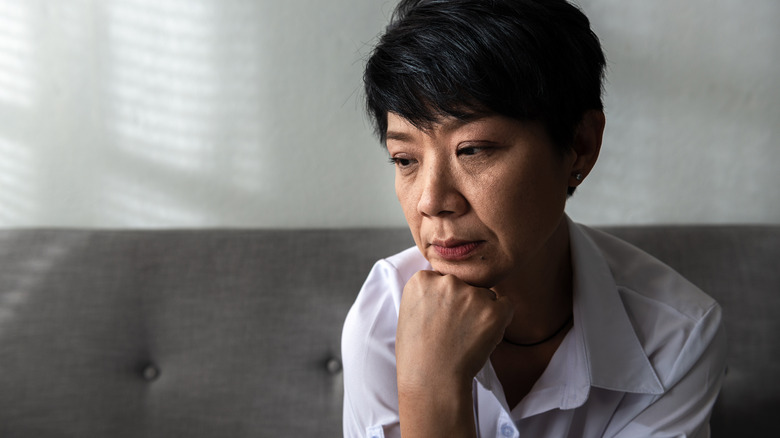Is Midlife Depression The New Midlife Crisis For Women?
According to Mayo Clinic, women are twice as likely as men to go through depression. While mood changes are normal as hormones shift throughout the month and different life cycles, VeryWellMind says that gender norms enforced by society have played a significant role. Housewives and mothers battle stress brought on by feeling devalued socially, but women who go after their career goals experience shame and discrimination for pursuing ambitions outside of the home.
Adding more fuel to the fire, a 2015 study published in Frontiers in Psychology said that men actually benefit from these social norms not only in terms of power and economic resources, but also in terms of their overall health, exposure to stress, and ability to respond to stress. Between 2009 and 2018, the Centers for Disease Control and Prevention (CDC) found that the percentage of people using antidepressants increased in women, but not in men.
The latest data from the National Center for Health Statistics reveal that 20% of women between 40 and 59 and 25% of women over 60 used antidepressants within the last 30 days between 2015 to 2018 (per The Wall Street Journal). Now, doctors are concerned at the rate at which antidepressants are prescribed. But what's really causing these struggles during midlife?
Understanding and combating midlife depression in women
A key question surrounding midlife depression is figuring out if it's really depression or midlife crisis. According to Healthline, the term "midlife crisis" was first used in 1965 by psychoanalyst Elliot Jacques and refers to people between the ages of 40 and 60 (per a 2020 study in American Psychologists) who experience feelings of depression related to approaching the end of life. Dr. Susan Albers told Cleveland Clinic that this time period doesn't have to be a negative experience. "It's the chance to pause and spend time and energy figuring out what's meaningful to you," she said.
In addition to depression and anxiety, feeling unhappy, unmotivated, and dissatisfied with your career or life choices are indicators of a midlife crisis. Mayo Clinic notes that perimenopause and menopause can increase the risk of feeling depressed. These types of hormone disruptions "can make a woman tune in to herself," Albers says.
Antidepressants have become one way to treat the emotional tolls of midlife, according to Talkspace. In addition to utilizing medication, Albers recommends acknowledging your feelings instead of suppressing them. Reevaluating your values, relationships, and the best way to spend your time can also help. Finally, making your health a priority is key. This includes diet, exercise, talk therapy, support groups, and other measures that cater to your mental health. If this is too challenging to work through on your own, a qualified mental health professional can help.


